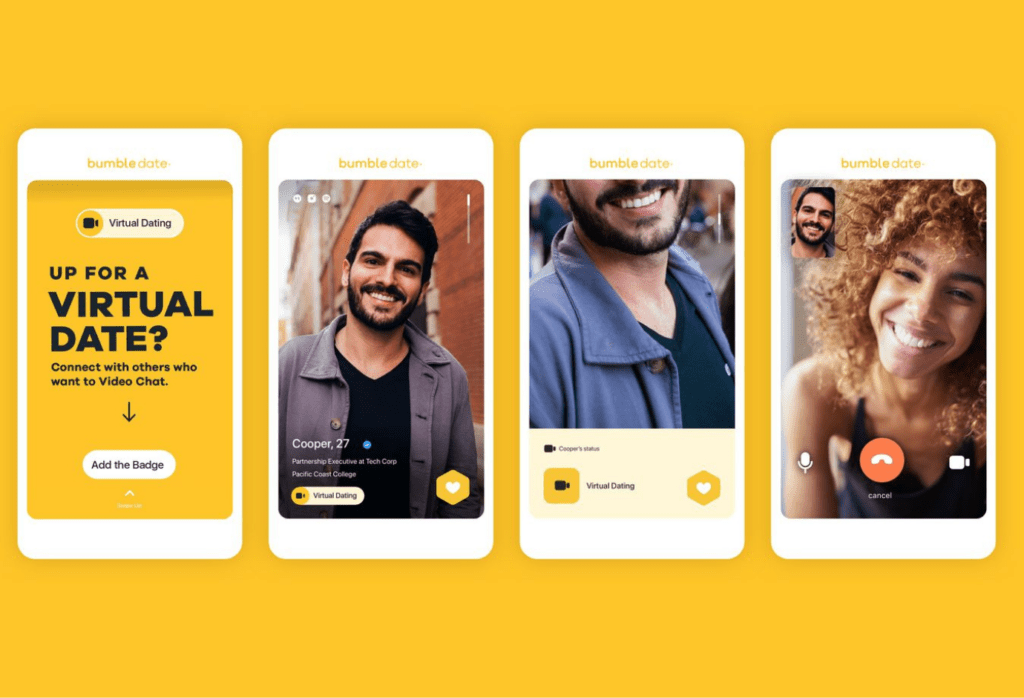Bumble, a dating app that markets itself as ‘feminist’ because it allows women to make the first move, might actually be limited by some difficult to undo, deeply rooted, old-fashioned power dynamics.
A new study by Monash University has found that the extent to which Bumble’s model can shift such dynamics or promote equality may ultimately be limited by traditional ideals of femininity and masculinity.
Honours student Meg Young co-authored the study with Associate Professor at the School of Social Sciences Dr Steve Roberts, titled ‘Shifting old-fashioned power dynamics’?: Women’s perspectives on the gender transformational capacity of the dating app, Bumble.
Published this month in Feminist Media Studies, Young worked with focus groups made up of 28 women aged between 18-37 who had used Bumble.
The participants were “mostly city-dwelling, university-educated, white women” and “described that using Bumble meant undergoing a process of unlearning some gendered norms,” the authors explained in an article. “It helped to change their awareness, understanding and critique of gender expression and norms.”
“Participants felt Bumble provided a safe space to challenge gendered expectations, gain confidence to initiate conversations and even appreciate the societal expectations often put on men,” Young, a researcher at a global media and marketing services organisation said.
“It eliminates the stigma attached to women starting conversations with men and provides a safe space for challenging gendered expectations.”
“Perhaps women weren’t comfortable with approaching men on other dating apps or offline, but they found Bumble to be a safe space to do that.”
Participants claimed they felt the app attracted a ‘better’ cohort of male users, describing them as less sexually aggressive and sending fewer or no unsolicited images compared with other dating apps.
“We found, however, while users appreciated the opportunity to explore non-traditional ways of courtship, there were many instances where gendered norms undermine Bumble’s claims about women’s empowerment,” Young said.
While some women spoke about feeling comfortable enough to pursue and obtain casual sex as well as more serious relationships on Bumble, many were still aware of pressures to embody particular ideas of femininity and remain ‘innocent’ and reserved.
“As one participant put it, she felt she appeared too eager if she had to start the conversation on Bumble,” Young said.
Researchers found that using Bumble meant the burden of unlearning gendered norms, gaining confidence, being assertive, and learning to exercise power in new ways was placed on the female users.
“Despite reporting noticeable benefits, our participants disagreed that Bumble vastly changed the gendered expectations that are deeply rooted in our society.”
“They rejected Bumble’s claim to ‘shift old-fashioned power dynamics’,” Young, whose area of interest explores gender, power, identity and social change, said.
“Empowering women takes more than just women starting the conversation, it is a problem that needs widespread change.”
Some participants were not convinced about the idea that women initiating conversations with men would empower them.
“We found Bumble supports a limited version of femininity that involves confidence and assertiveness,” Young said.
“While this allows users to move away from traditional expectations of women being innocent or passive, there is a risk they will be restricted in a new way.”
Young believes that further research into Bumble was required, particularly around men and the idea of masculinities.
“Women in our research illustrate that technological design can, to some extent, challenge existing gendered patterns,” they said.
“The research also makes clear that the transformational capacity of this app is limited both by the traditional gendered expectations held in wider society, and by the brand using women’s empowerment to sell its product without properly tackling systemic oppression.”
“This not only reinforces a very individual understanding of empowerment but also reinforces a new, equally as limiting post-feminist ideal for women.”
The app was founded in 2014 by Whitney Wolfe Herd and has since become the second most downloaded dating app in the U.S. As of January this year, it has had more than 100 million users.


